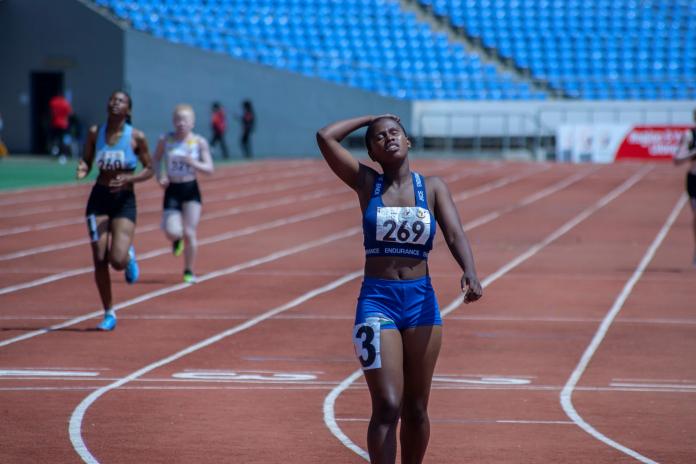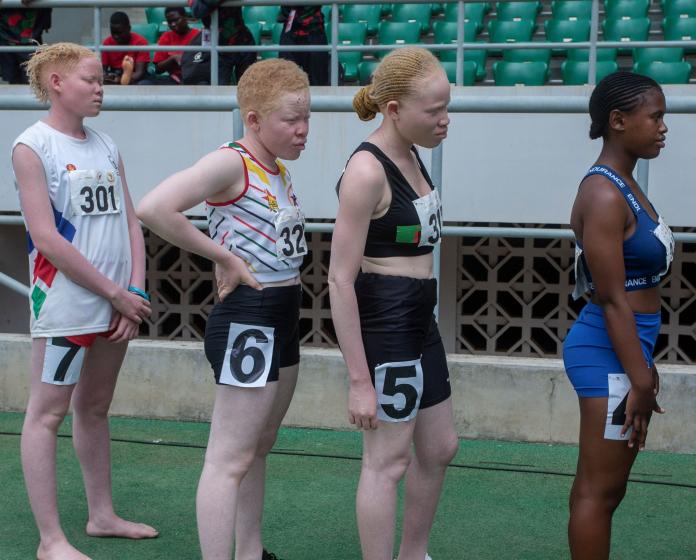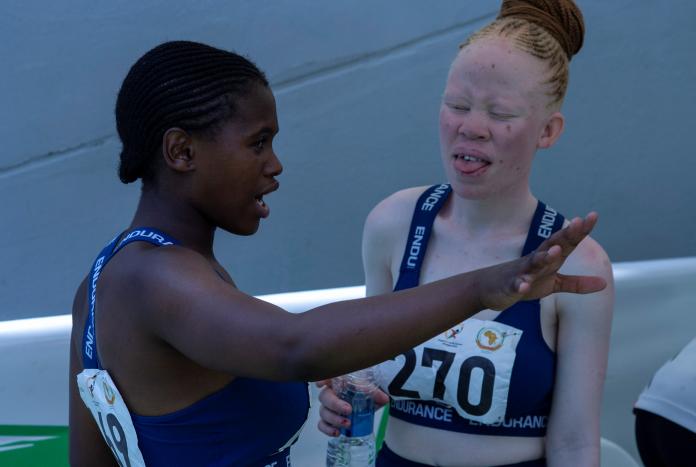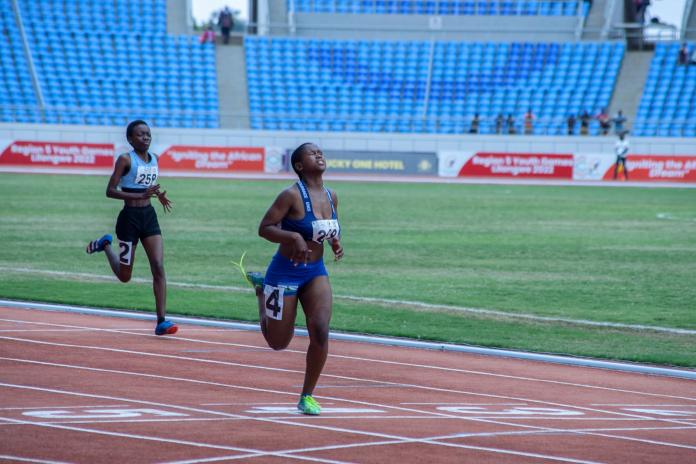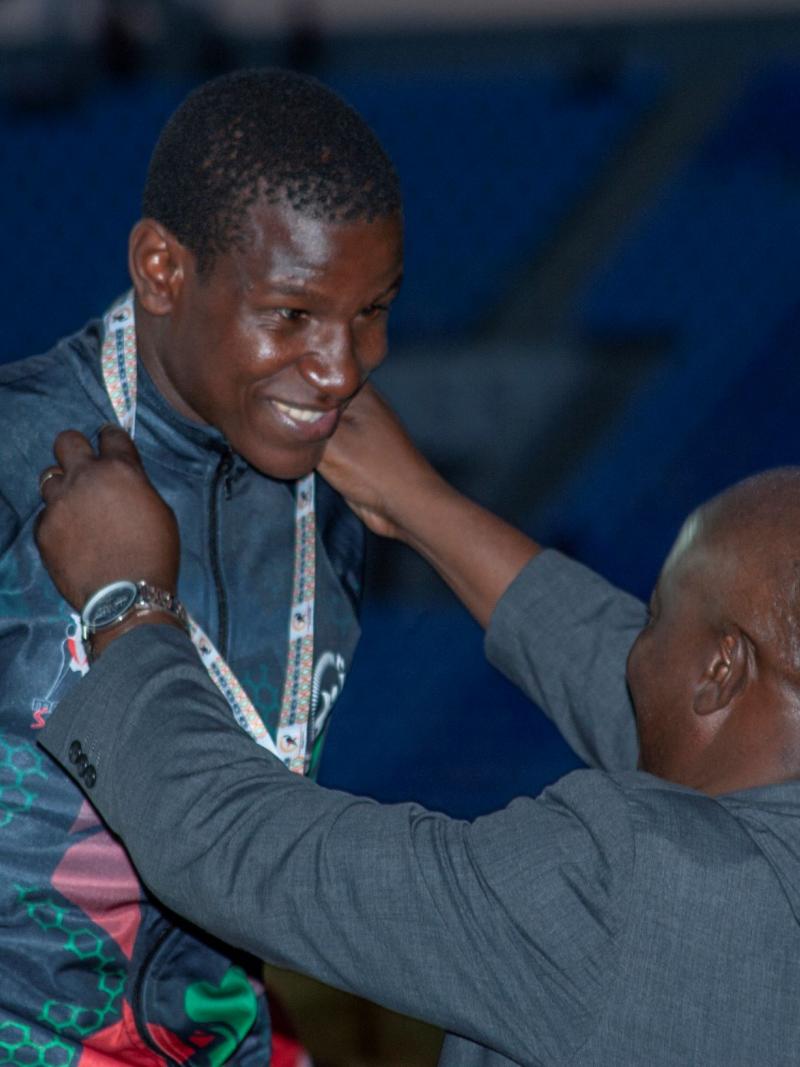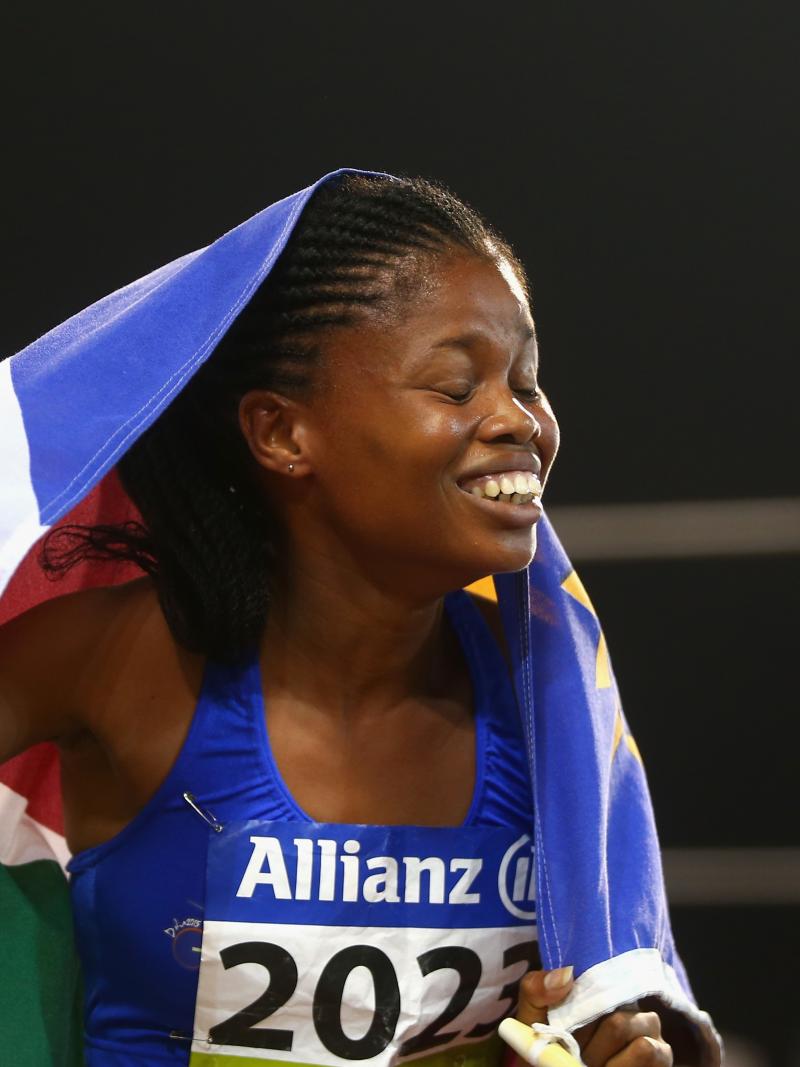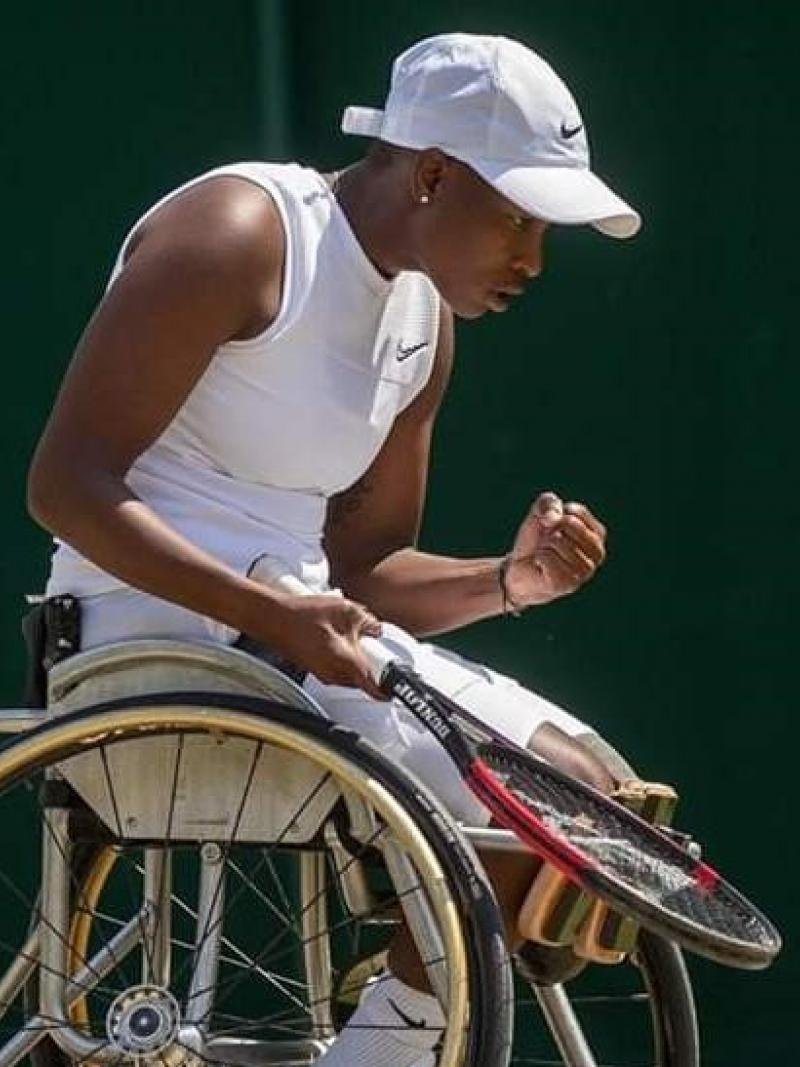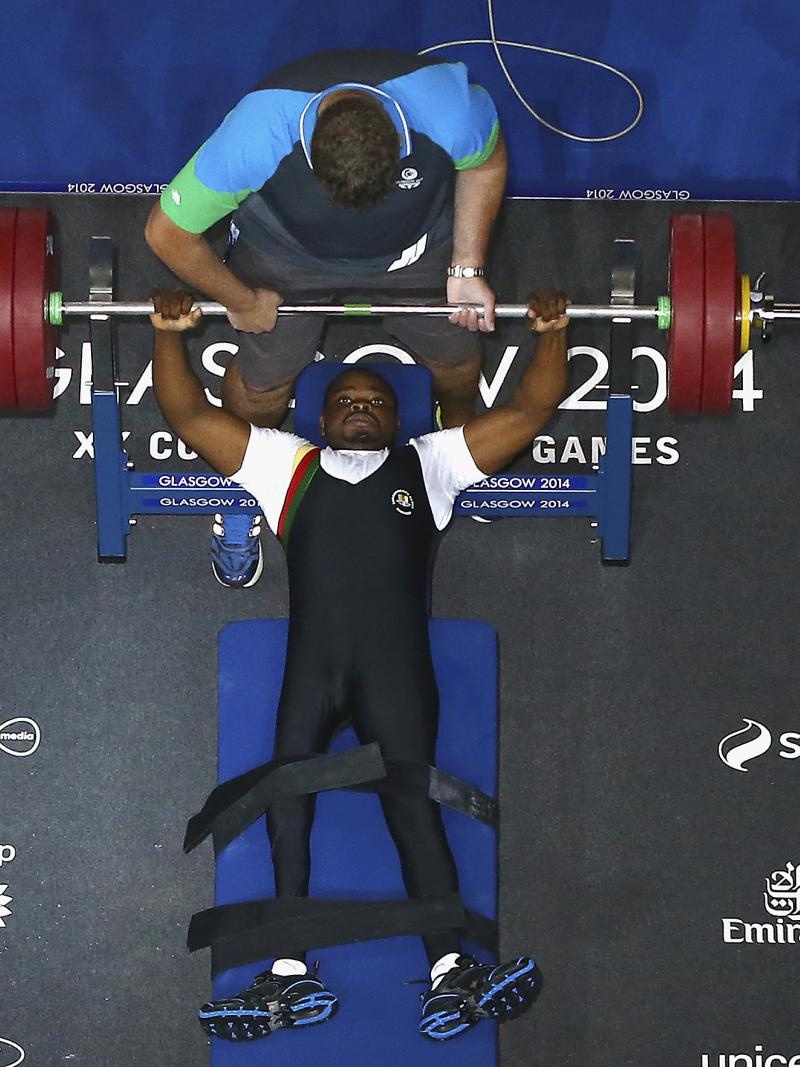Self-acceptance helps Kete embrace life after losing eyesight in medical mystery
"I’ve learned that I’m like this, I have to accept myself like this" - teenage sprinter from Lesotho encourages young athletes to be confident about their disabilities and to chase their dreams 15 Feb 2023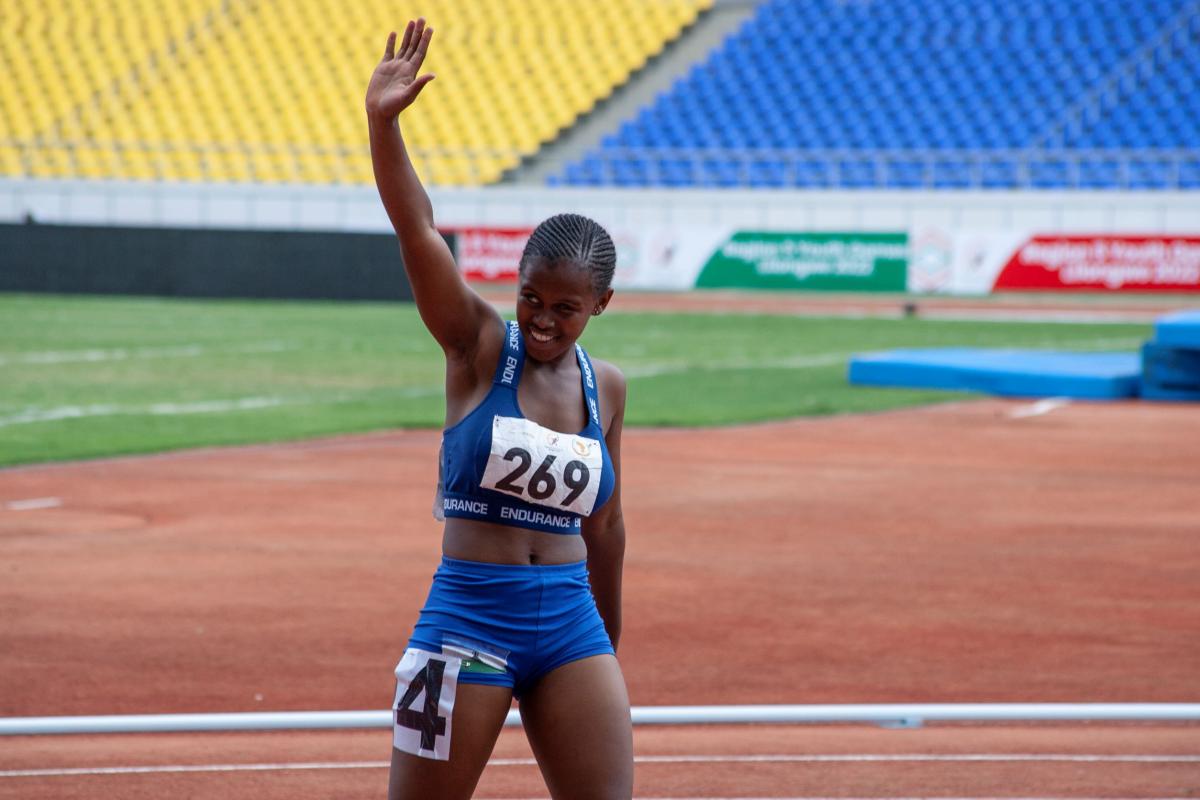
Lesotho’s Hlompho Kete was seven years old when she started to lose sight in her eye. By age 12, she lost sight in her second eye as well. In between, she spent months in hospital as the doctors struggled to put a diagnosis on her illness.
Five years later, the cause of her sight loss remains a mystery.
Faced with the world going dark around her and no solutions offered, there was only one thing for Kete to do. She moved on with her life.
“I was like ‘OK, I lose my sight, OK, I become blind. I’m going to use a cane, that’s fine’,” Kete said. “I will learn how to do it, but then (my sight) came back a little again. I can walk without a cane. I can do anything.”
Not only could Kete walk without a cane, she could run as well.
The 17-year-old now competes in sprint races for athletes with a vision impairment at the national and international levels. She has taken part in two Region 5 Youth Games, winning medals on both occasions.
A medical mystery
Kete knew something was wrong when she first felt discomfort in her eyes in 2012.
“It started to feel like pain, then I went to the hospital. But they said they don’t know what to do with my eyes,” she said. “They say, there is nothing wrong about my eyes.”
At the doctors’ suggestion, she remained at the hospital and what started as a simple check-up turned into a three-month hospital stay while she underwent numerous medical tests.
Although she was only a child at the time and in the hospital alone, Kete said she was not afraid or lonely.
“I was young and I was like, ‘Never mind, this is OK’,” she said. “I wasn’t afraid. I wasn’t crying. I was enjoying being in the hospital because I didn’t see myself as sick. I didn’t see myself, like ‘I’m ill’, no. I was like ‘OK, I’m going to live here. I’m going up and down to play with other kids’. Just like that.”
After three months Kete was released from the hospital, still missing an answer to her medical problems. But once she went home, she soon started losing vision in her other eye as well.
That is when sport came into her life.
Sprinting out of darkness
Kete had practised sports before losing her sight, but it was not until 2018 that she became a competitive athlete.
Taking up running with a vision impairment posed a new set of challenges. Kete runs without a guide and relies on senses other than sight to orient herself on the track and the positions of the other athletes.
She started with longer distances, but has since switched to sprints, which she prefers.
“I can do long distance and short distance,” Kete said. “But I want to be a sprinter. (A sprinter) needs to be a person who has the strength, who knows how to move fast.”
Kete trains after school at a local stadium. Working with a coach, she has learned to use starting blocks and noticed her body getting stronger.
In addition to the physical strength, sport has also boosted her self-confidence.
“It changed me a lot,” Kete said. “I was shy about my eyes. I was like, ‘What are people going to say about my eyes?’ but I’ve learned that I’m like this. I have to accept myself like this.”
For family and country
Lesotho is a small nation in southern Africa with a population of about 2 million people. Kete lives in the capital Maseru.
There are four people in her family – herself, her mother, and her two brothers. While over-protectionism is a common theme when it comes to people with disabilities in Africa, Kete’s family proved to be out of the ordinary.
“I live at the school in the town, so after school I take off my uniform and go to the stadium,” Kete said. “And they are just happy for me. ‘How do you run if you cannot see? How? Teach us how to run’. I said, ‘It’s a simple thing. You can run, even when you’re not able to see’.”
In 2021, Lesotho hosted the Region 5 Youth Games. Kete's family was there to watch her compete and win a gold medal in the women’s 800m race and a silver in the women’s 400m.
At the 2022 edition of the Games, Kete improved further, winning medals in all her events, the women’s 400m, 200m and 100m.
“It’s so special because, as my country is so small, I want to present my country everywhere,” the athlete said. “Lesotho is small. It has nothing, I can say, but I want it to be known by everyone.”
Now firmly on the path to making her family and country proud, Kete’s advice for those who want to do the same is to start by embracing their impairment.
“They have to accept themselves. And if they have the career or talent to do so, just keep it up. They can do whatever they want,” Kete said. “Many others have a career in sports, so they can also keep it up and go (forward). But they should see themselves to be like other people, like ‘OK, I’m disabled, but I can do this’. They should go and do that.”

 Facebook
Facebook
 Instagram
Instagram
 Twitter
Twitter
 Youtube
Youtube

